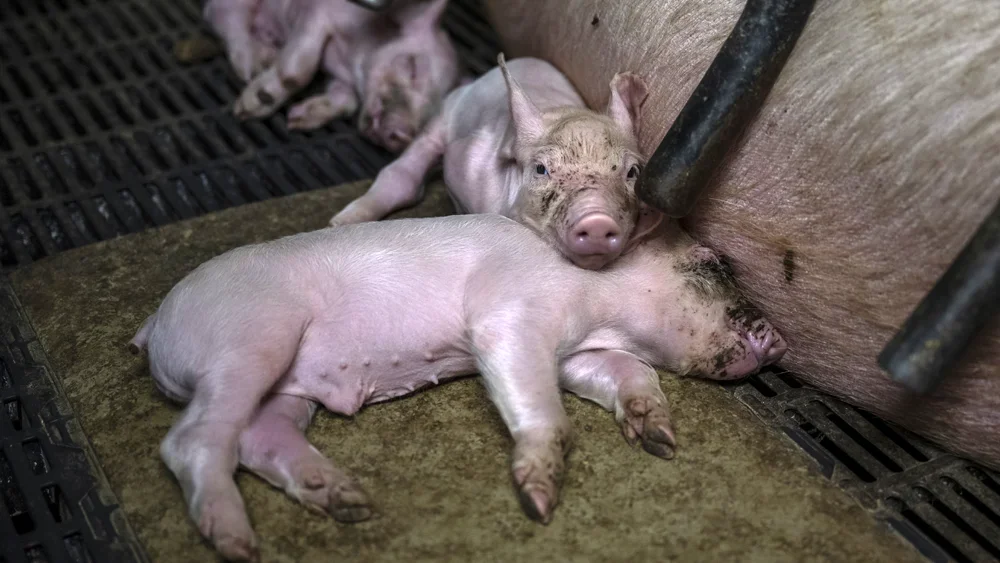Deadly “superbugs” found in major British supermarket meat supply chains, new report finds
A new investigation links pig farms supplying Tesco, Asda, and M&S to the growing threat of antibiotic-resistant “superbugs.”
Photo: AGtivist.agency
“Superbugs” are present in multiple UK meat supply chains, including those of leading supermarkets and food suppliers, a joint investigation by Animal Justice Project and AGtivist has revealed.
Government data show more than 200 salmonella-positive samples of pork meat products, as well as some pig farms. 140 of these samples were resistant to at least one antibiotic, and over 120 to multiple drugs.
The most recurrently found antibiotic-resistent strain was Monophasic Salmonella Typhimurium, a common cause of food poisoning.
The records, from between 2021 and 2024, were published on the website of the Agri-Food and Biosciences Institute (AFBI) in Northern Ireland following a freedom of information request.
Suppliers include Karro Foods, Finnebrogue and Cranswick, companies providing meat to Asda, Aldi, M&S and Booker, a subsidiary of the Tesco group, the records show.
Multiple pig farms in Northern Ireland were additionally found to be contaminated.
”If the public is interested in the dystopian reality of modern intensive pig production, watch this footage,” said Dr Steven McCulloch, European Veterinary Specialist in Animal Welfare Science, Ethics and Law. “Caged breeding sows, mutilated piglets, suffering and death. Cruelty to pigs in squalid and filthy conditions. And a pharmacy of antibiotics to mitigate disease. We must ask why governments, the veterinary profession and society prioritise cheap pork and bacon over life saving antibiotics?”
The data was supported by footage from four of the farms found to have been contaminated with salmonella and identified in the government data.
The investigation exposed the disturbing use of controversial antibiotics, administered through medicated feed, drinking water, and injections, including some classified as Highest Priority Critically Important Antibiotics (HPCIAs) for human medicine.
Across the sites, unsanitary conditions were rife: animals were born into filthy surroundings, with accumulated faeces and deteriorating infrastructure throughout the facilities.
“What I saw on this probe will haunt me for years: choking dust and stench, pigs trapped in filth and darkness, sows crammed in crates beside dead and dying piglets, and a skeletal sow barely alive beside her newborn’s body. No animal can survive such squalor without constant antibiotics - and conditions inside these farms are only getting worse.”
Investigators also uncovered widespread fatalities and decomposing bodies, including piglets and adult pigs left in walkways, skips, and farrowing crates.
Many animals were found with severe, untreated injuries, such as open wounds, head trauma, and convulsions, while an emaciated sow was left to suffer in a walkway.
Bloodied piglet corpses were also discovered inside pens. Sows were confined overnight in restrictive insemination crates, unable to turn around.


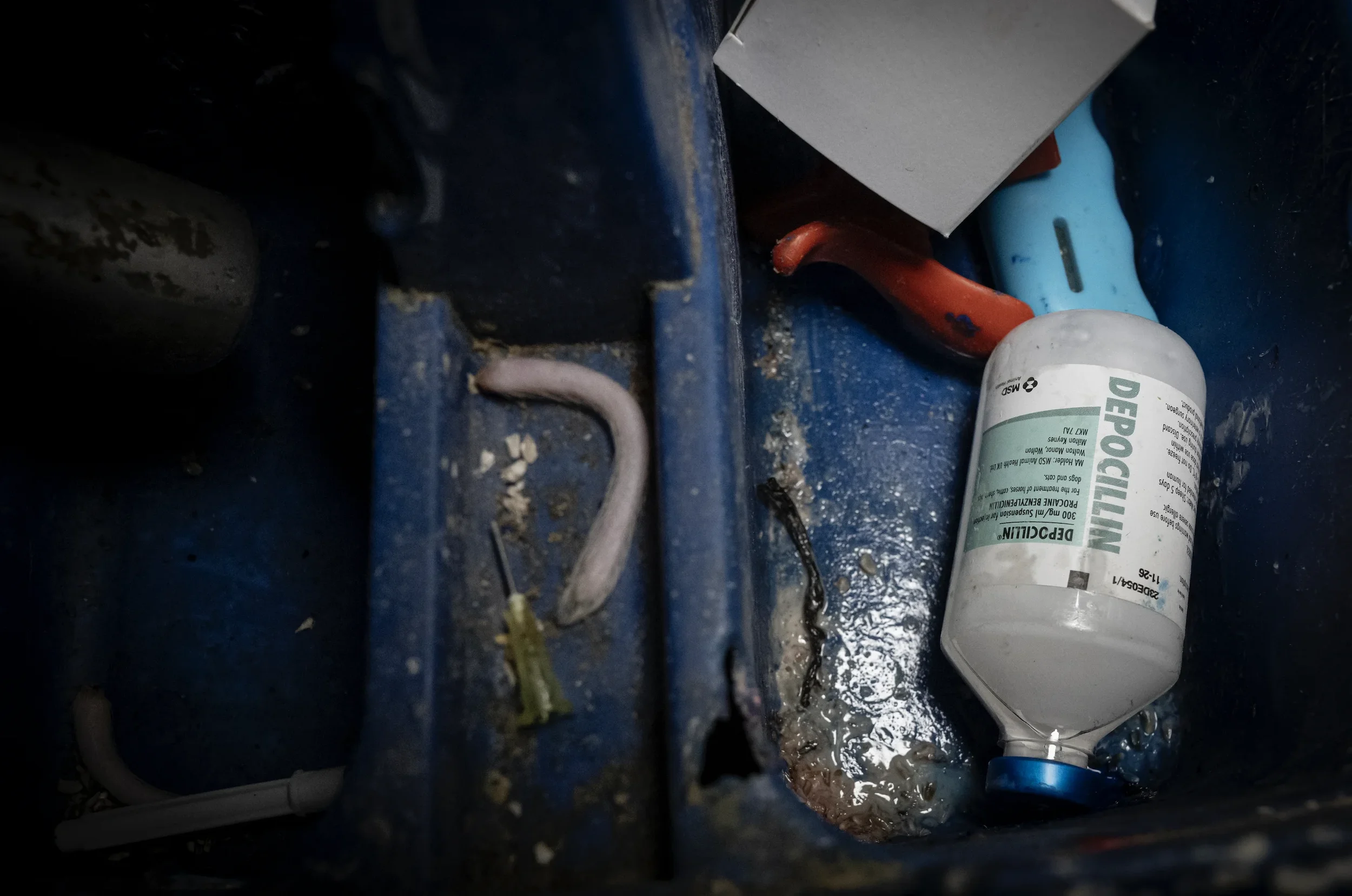
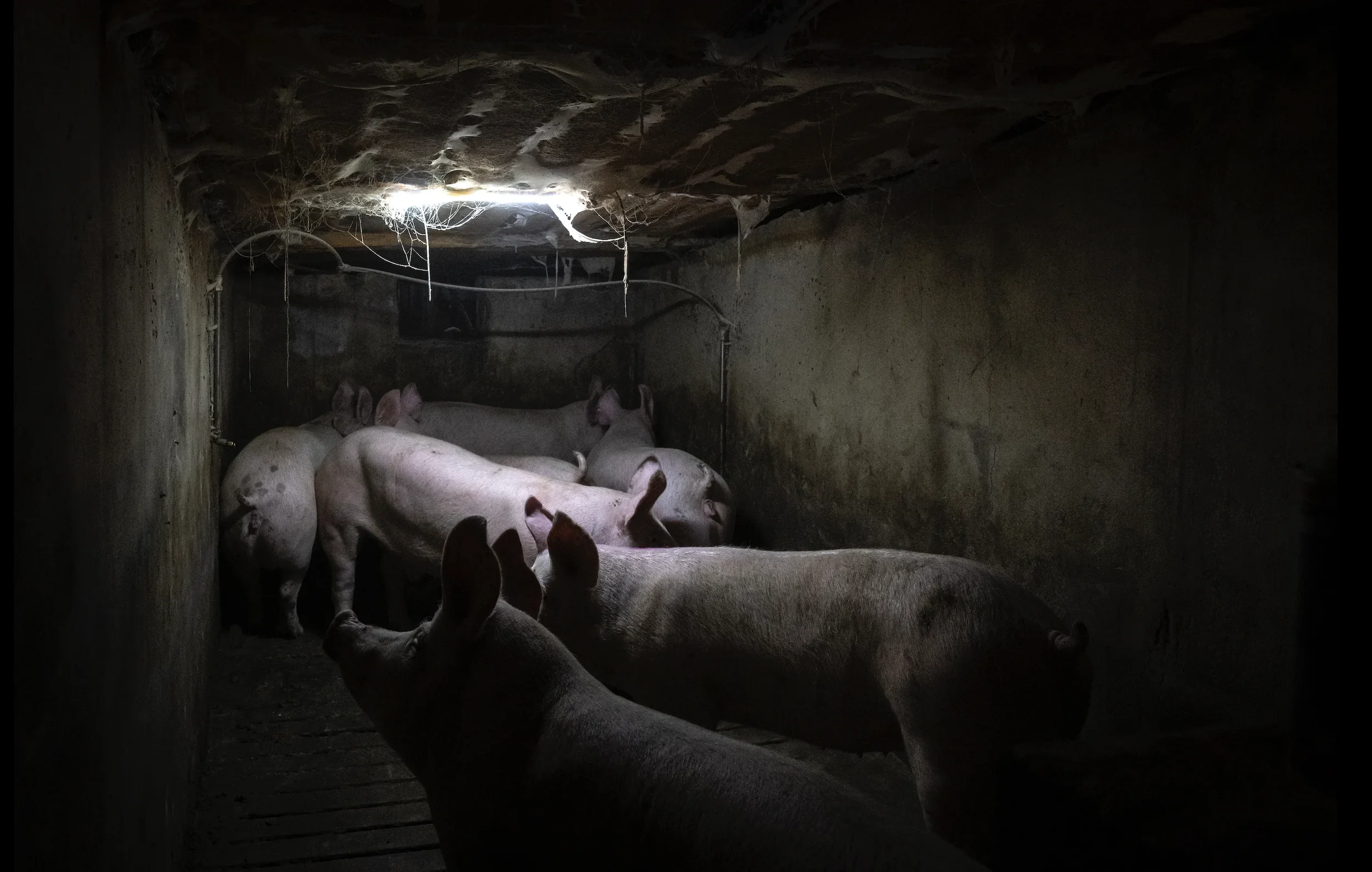
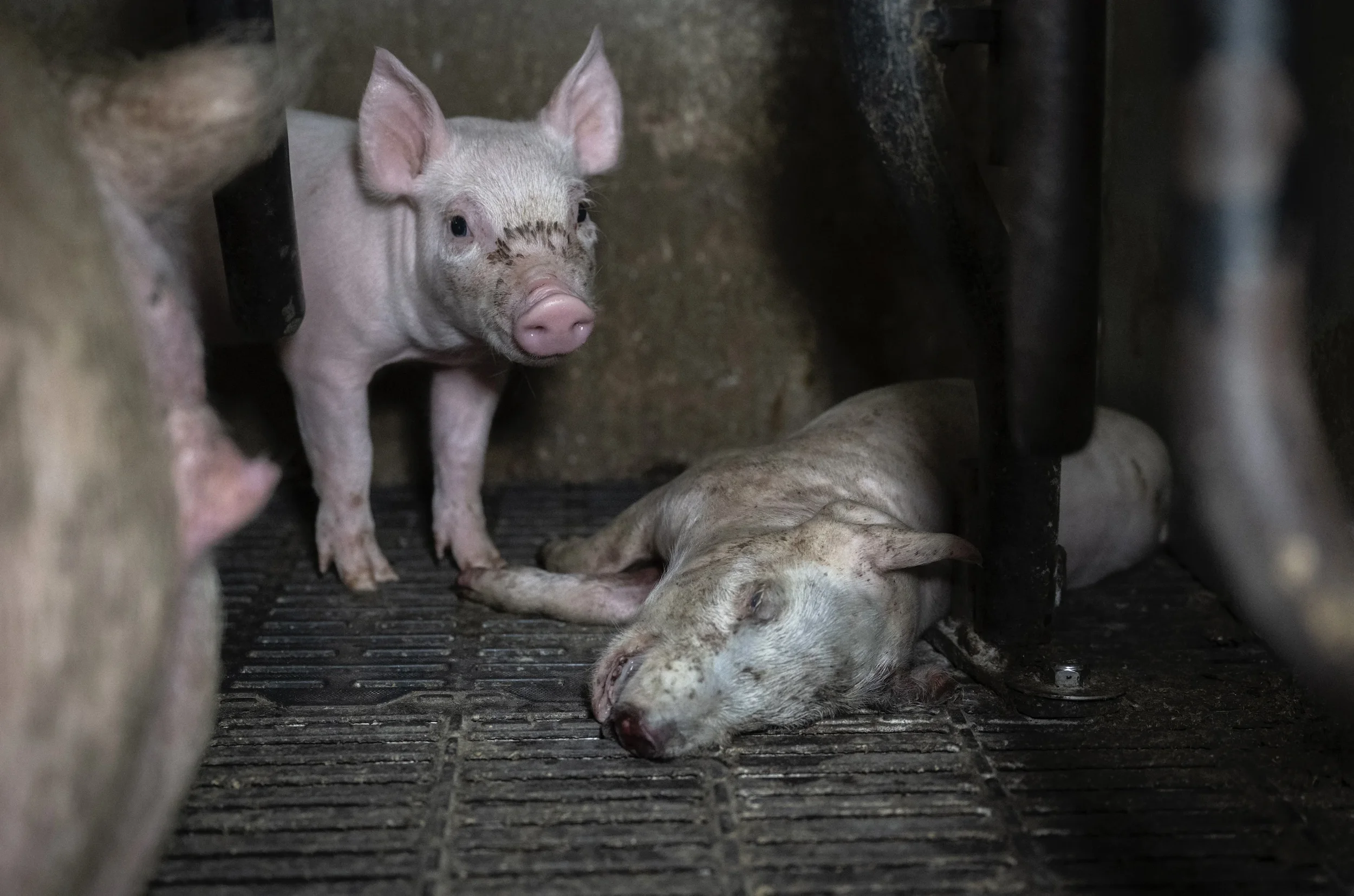
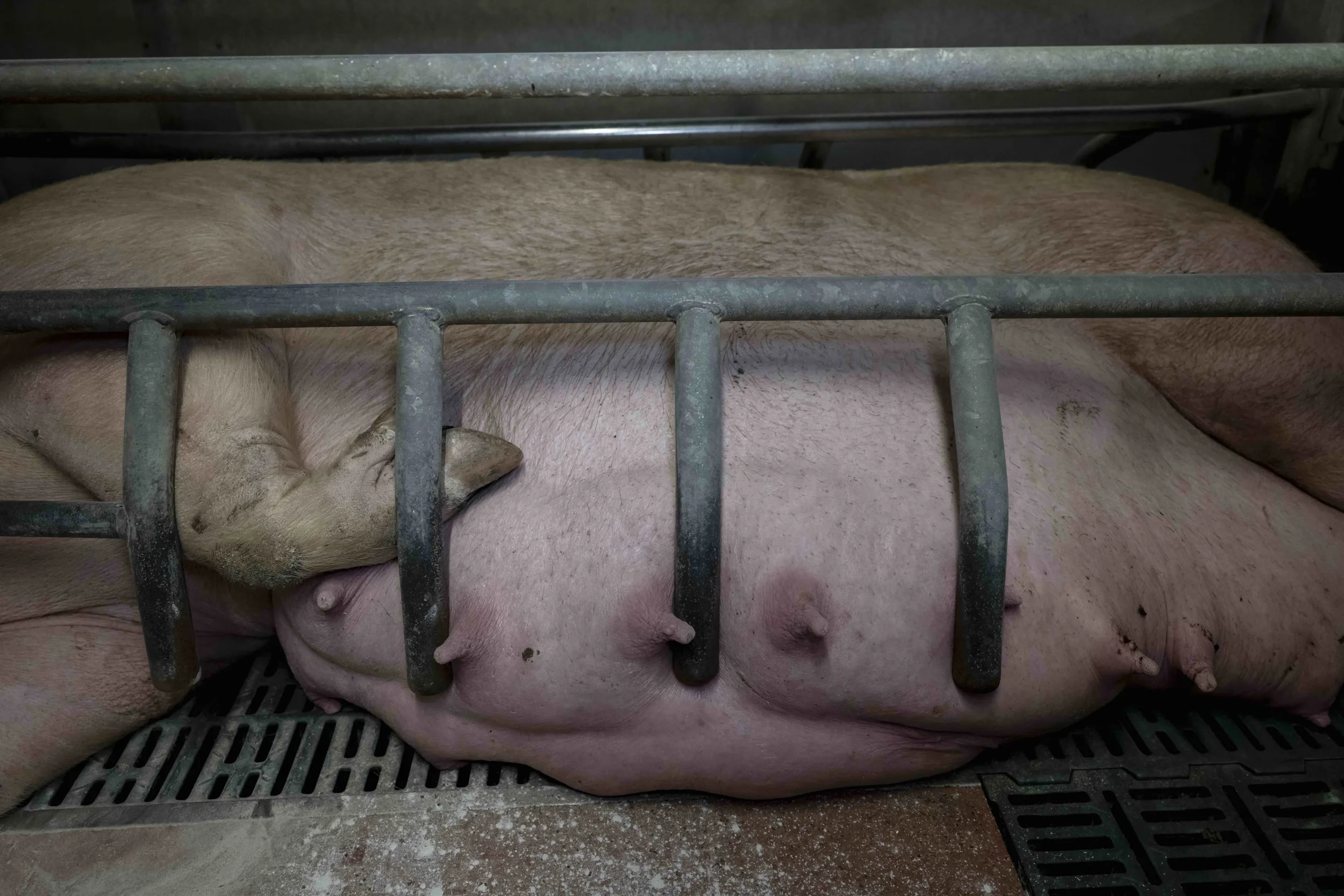
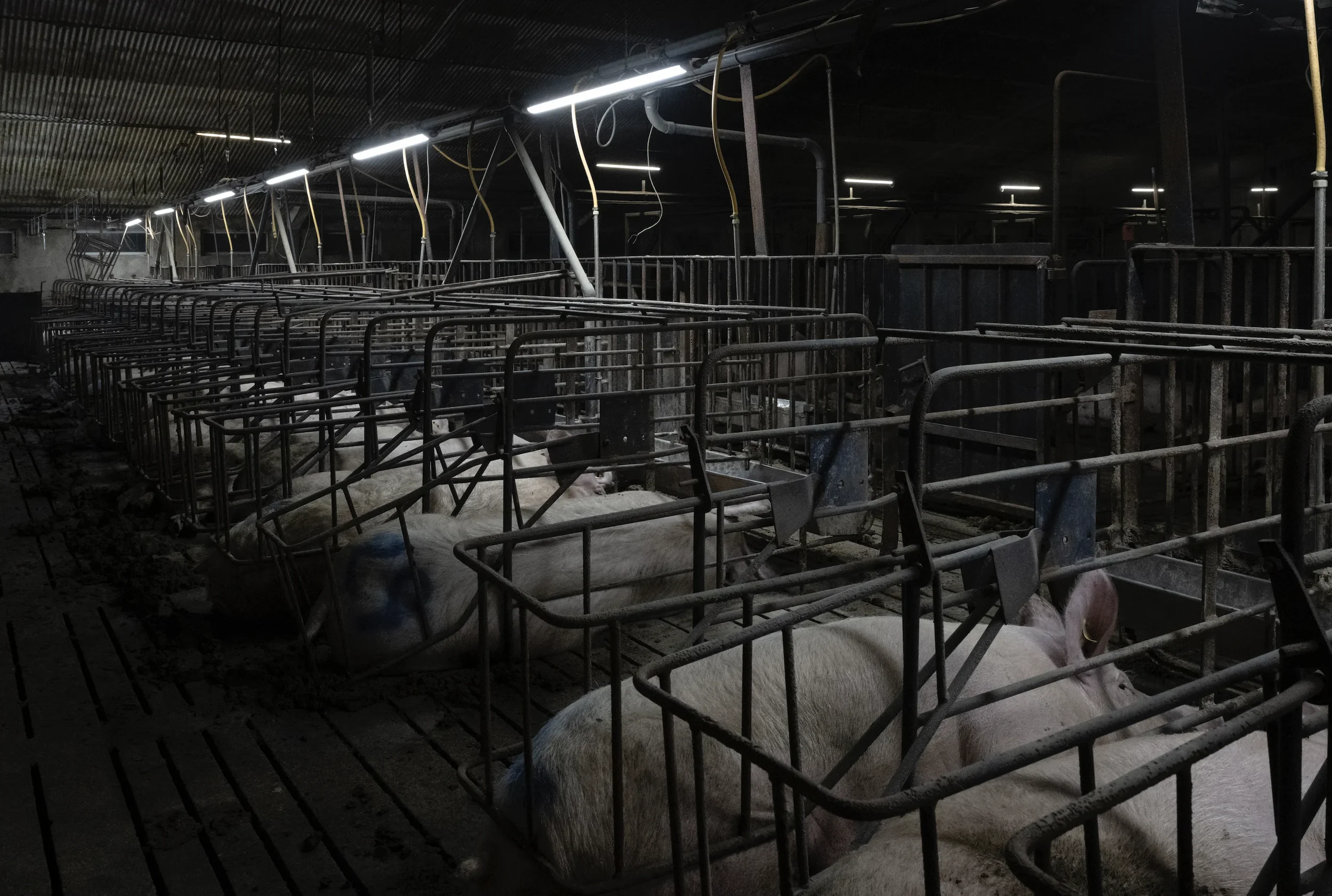


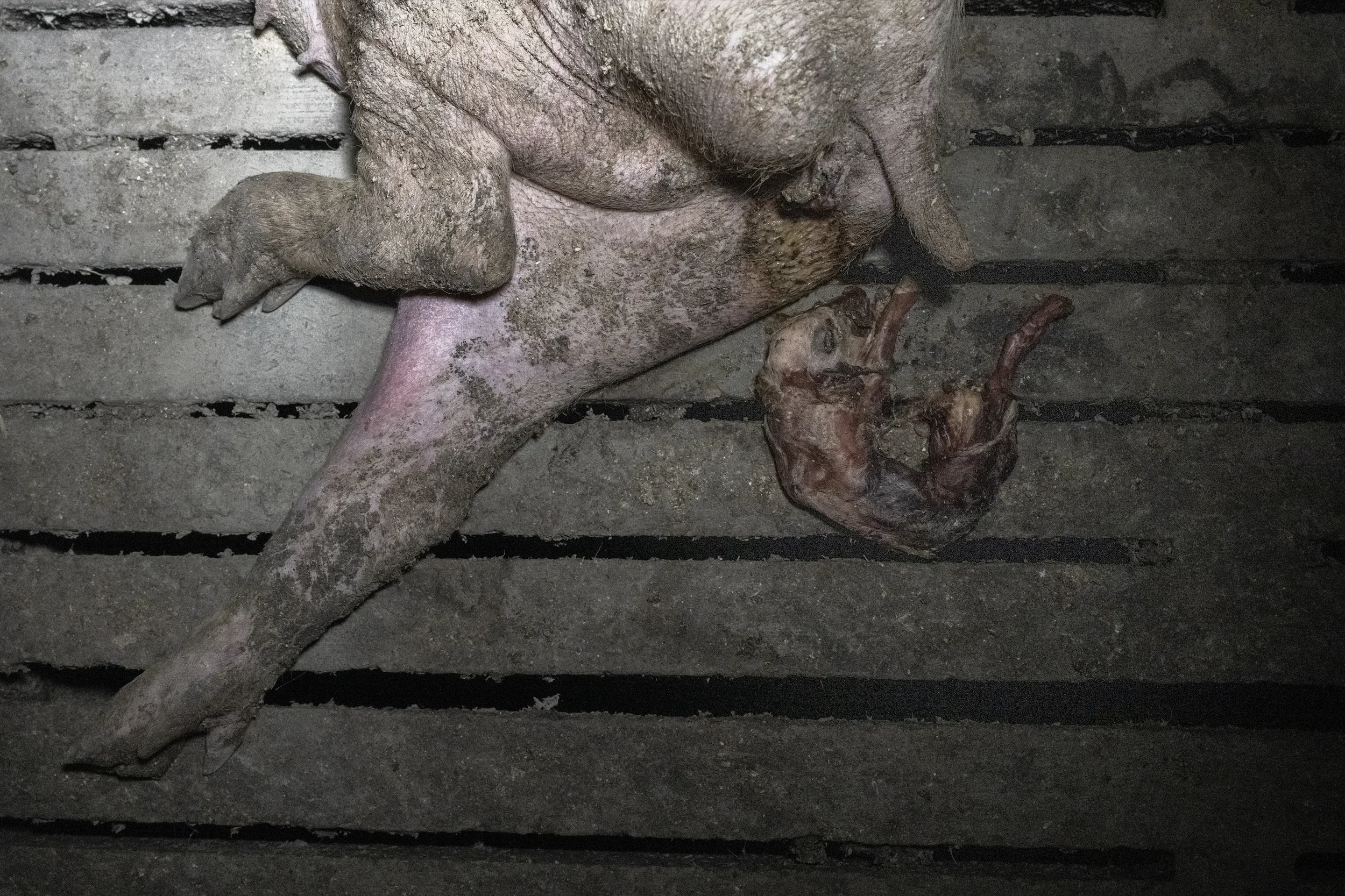
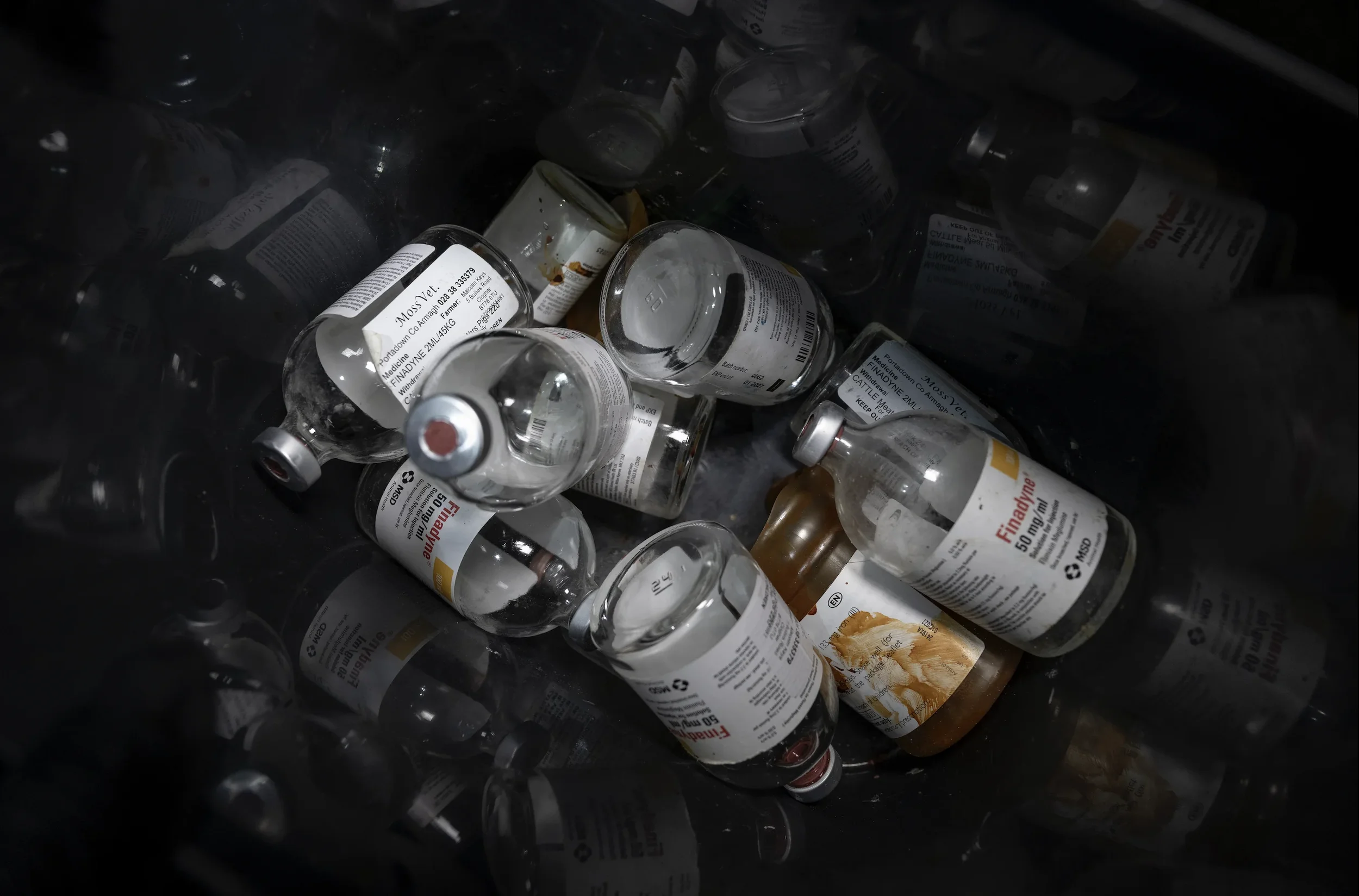

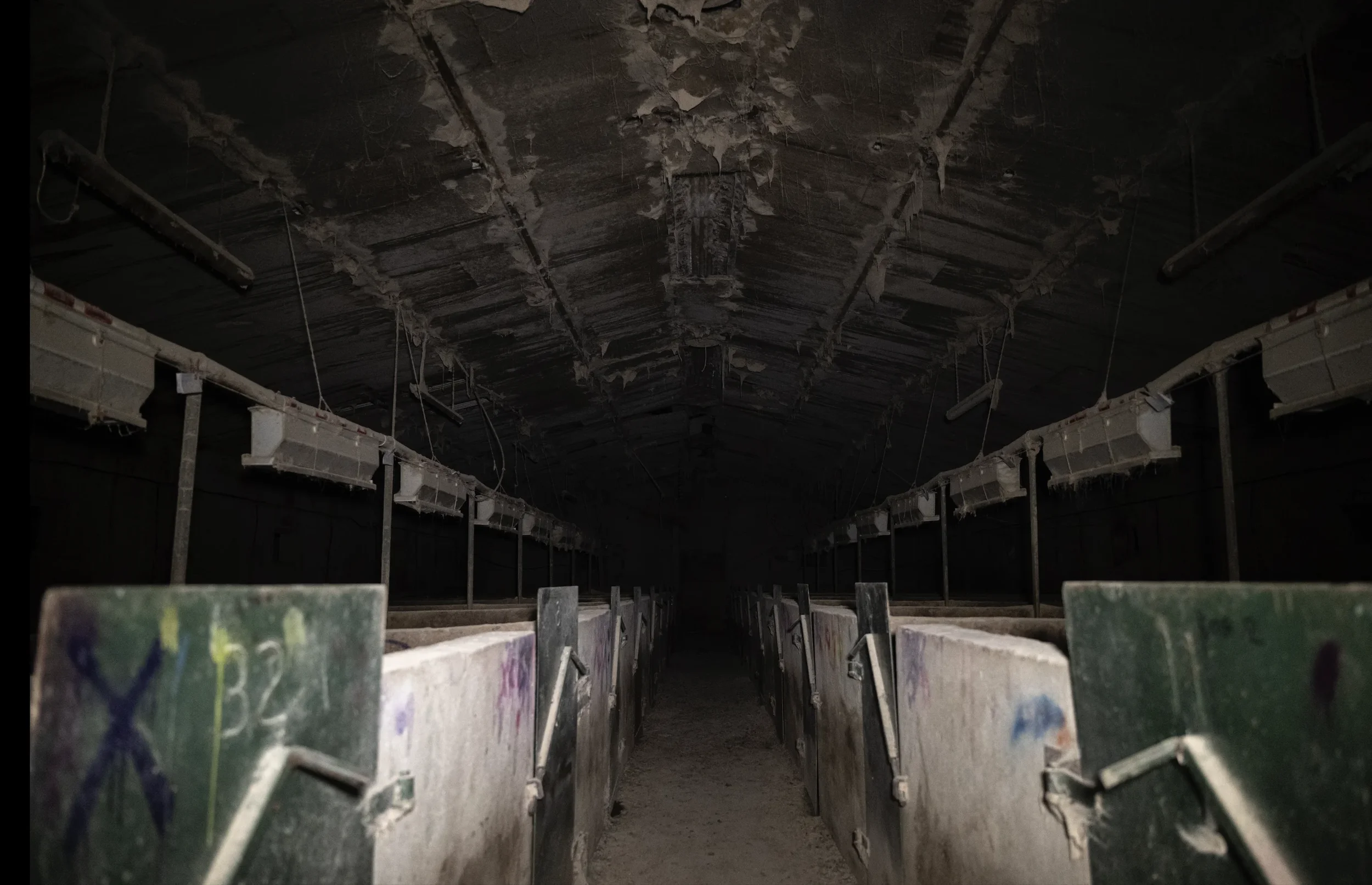
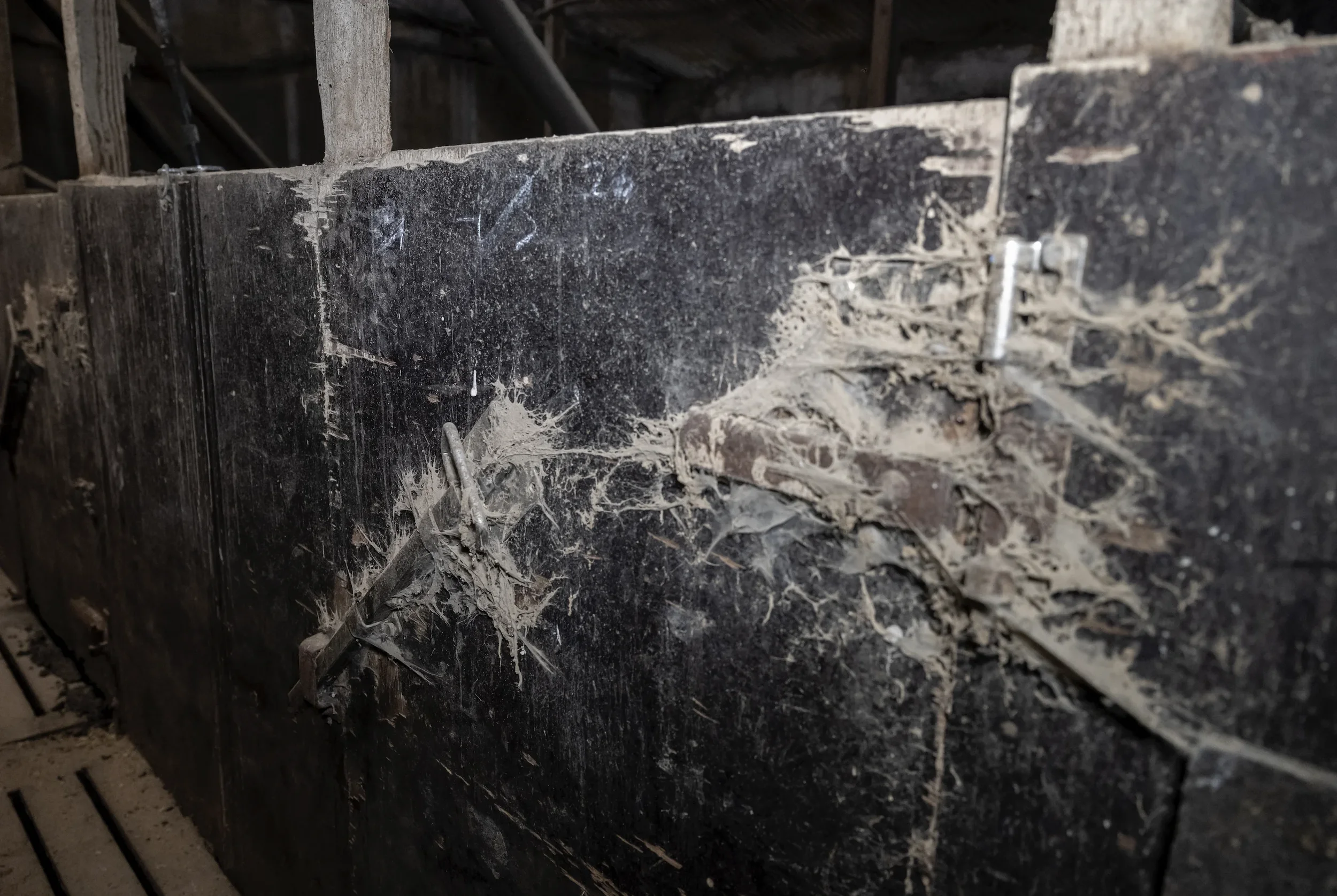





Investigators found six different classes of antibiotics being used on the pigs at these farms, including multiple types that are classified as ‘Highest Priority Critically Important Antibiotics (HPCIA)’ by the World Health Organisation (WHO).
The filthy, overcrowded sheds found on pig farms are the perfect conditions to allow infections such as salmonella to thrive, according to critics of intensive animal agriculture. They say these farms can even act as “incubators” for drug resistant disease variants in humans.
Dr Ron Daniels, founder and chief medical officer at the UK Sepsis Trust, and a leading voice on antibiotic resistance, said that whilst the UK has banned antibiotics for growth promotion, “entire herds can still be treated when just one animal is sick. We urgently need legislation – and a fundamental rethink of our consumption – to protect our future.”
What can you do?
Choosing a plant-based lifestyle is one of the most impactful choices you can make for animals, the environment, and your own well-being. Take Species Unite’s 30-Day Plant-Powered Challenge and be a part of a movement that's changing the world for the better.
We Have A Favor To Ask…
Species Unite amplifies well-researched solutions to some of the most abusive animal industries operating today.
At this crucial moment, with worldwide momentum for change building, it’s vital we share these animal-free solutions with the world - and we need your help.
We’re a nonprofit, and so to keep sharing these solutions, we’re relying on you - with your support, we can continue our essential work in growing a powerful community of animal advocates this year.

